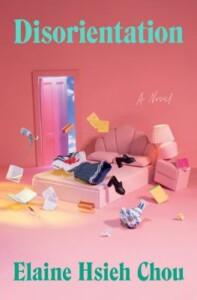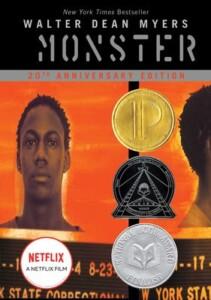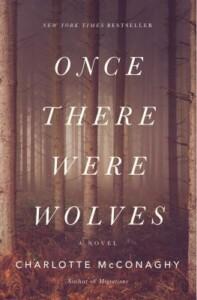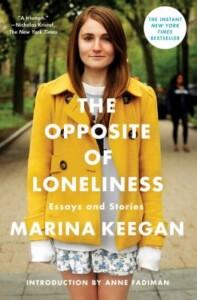March Book Club Reviews
If you would like to be put on the book club mailing list, fill out this form:
 Disorientation by Elaine Hsieh Chou
Disorientation by Elaine Hsieh Chou
Twenty-nine-year-old PhD student Ingrid Yang is desperate to finish her dissertation on the late canonical poet Xiao-Wen Chou and never read about “Chinese-y” things again. But after years of grueling research, all she has to show for her efforts are junk food addiction and stomach pain. When she accidentally stumbles upon a curious note in the Chou archives one afternoon, she convinces herself it’s her ticket out of academic hell.
But Ingrid’s in much deeper than she thinks. Her clumsy exploits to unravel the note’s message lead to an explosive discovery, upending not only her sheltered life within academia but her entire world beyond it. With her trusty friend Eunice Kim by her side and her rival Vivian Vo hot on her tail, together they set off a roller coaster of mishaps and misadventures, from book burnings and OTC drug hallucinations, to hot-button protests and Yellow Peril 2.0 propaganda.
In the aftermath, nothing looks the same to Ingrid—including her gentle and doting fiancé, Stephen Greene. When he embarks on a book tour with the super kawaii Japanese author he’s translated, doubts and insecurities creep in for the first time… As the events Ingrid instigated keep spiraling, she’ll have to confront her sticky relationship to white men and white institutions—and, most of all, herself.
This book took me by surprise, if I’m being honest. I had seen it talked about by people whose opinions I trust, but it still looked like it was going to be a dry, academic-set story. This book is anything but. In fact, the details, which are delightfully sharp, quickly push this book from witty to satirical. There’s a lot in the book that deal with race from the perspective of a minority surrounded by white people in power. This could be discomfiting but the amount of humor that Elaine Hsieh Chou puts in to each situation both heightens the conflict and disarms the tension.
The story is also written at this heightened, hyperbolic level. What starts out as a chronicle of Ingrid’s dissertation research snowballs into an adventure. Early on we get the addition of a private investigator, and from there spirals out into a full-on adventure.
The author was previously in academia and left in situation similar to the scene when Ingrid nearly gives up to become one of any number of careers she quickly jots down in a list. You can read an article that Elaine Hsieh Chou wrote about her experiences with white men and their sexualization and objectification of Asian women at The Cut (https://www.thecut.com/2022/03/what-white-men-say-in-our-absence.html). A lot of these ideas worked their way into her novel, though be warned: the article is not humorous and the things she overhears, reads, and is subjected to are distressing.
Review by Adam
 Monster by Walter Dean Myers
Monster by Walter Dean Myers
Trigger Warnings: racism, rape, drug use, murder.
Sixteen-year-old Steve Harmon is on trial for murder. A Harlem drugstore owner was shot and killed in his store, and the word is that Steve served as the lookout. Guilty or innocent, Steve becomes a pawn in the hands of “the system,” cluttered with cynical authority figures and unscrupulous inmates, who will turn in anyone to shorten their own sentences. As a way of coping with the horrific events that entangle him, Steve, an amateur filmmaker, decides to transcribe his trial into a script, just like in the movies. He writes it all down, scene by scene. But despite his efforts, reality is blurred and his vision obscured until he can no longer tell who he is or what is the truth.
Monster is an interesting book in many ways. Firstly, it is written in the format of a movie screenplay interjected with diary-like entries from the main character, Steve Harmon. The screenplay unfolds as an intense courtroom drama, where everyone seems to be against Steve. Secondly, the story raises a lot of questions about guilt, peer pressure, racial stereotyping, and flaws of the court system. Is Steve, a black boy from Harlem, really guilty? If not, how can he distance himself from the other men on trial? If yes, does being a lookout really make him a murderer? How can he come out of this and not look like a monster in the eyes of the courtroom and public? The ending of the book is vague, leaving it up to you to decide if Steve is an innocent victim or a guilty murderer.
Though it’s a quick read, Monster is a deeply moving look into how young men are often caught up in a justice system that ‘monsterizes’ them in a way that leaves them unable to receive a fair trial. If you like realistic fiction, books about crime and the justice system, or books written like screenplays, check out Monster.
Review by Liz
 Once There Were Wolves by Charlotte McConaghy
Once There Were Wolves by Charlotte McConaghy
Once There Were Wolves is the next book by Australian author Charlotte McConaghy after her bestselling and critically acclaimed 2020 adult debut, Migrations. Though I did not read Migrations – I want to now – Once There Were Wolves reminded me of The Overstory by Richard Powers and if you liked that, you might like Once There Were Wolves. It’s shorter and reads much quicker! And especially if you love trees, forests, wolves, oh and strong female characters, add this to your reading list. McConaghy’s webpage describes this 2021 book as a “…romantic mystery about a biologist charged with reintroducing wolves to the Scottish Highlands in order to rewild the landscape and bring the forest back to life.” McConaghy’s love of nature is the highlight of this book with her vibrant, poetic passages about our natural world. I enjoyed this book, more so than I expected, until the very last 20 pages or so when the story became a bit too unbelievable but then again, this is fiction and fiction is a device to drive an author’s philosophical questions. Amidst the storyline of conservation and rewilding are subplots of trauma, healing, trust and love. The thematic question this book asks is if people by nature (and really, I’d bounce this up to all wild things bright and beautiful) are inherently good, kind and forgivable. A minor character’s line I think summarized this book best, “ … when you open your heart to rewilding a landscape, the truth is you’re opening your heart to rewilding yourself.”
Review by Regan
 The Opposite of Loneliness: Essays and Stories by Marina Keegan
The Opposite of Loneliness: Essays and Stories by Marina Keegan
This set of brief works, including non-fiction essays and short stories, was published after the author died five days after her college graduation. Keegan was an incredible person all around, including a fabulous poet and performer, playwright, and Yale graduation speaker. She left behind a huge amount of works for such a young author, and nearly every essay in the collection is thoughtful and well-written. In the forward, the editor (a mentor of Keegan) talks about how her stories speak so much of her youth and optimism, and it really reads like the work of an author just getting started in the best way. It’s a tragic story but a great way to honor the author’s memory and promise. As her editor says, “Marina wouldn’t want to be remembered because she’s dead. She would want to be remembered because she’s good.” Read this book to see just how good she was.
Review by Shelly




